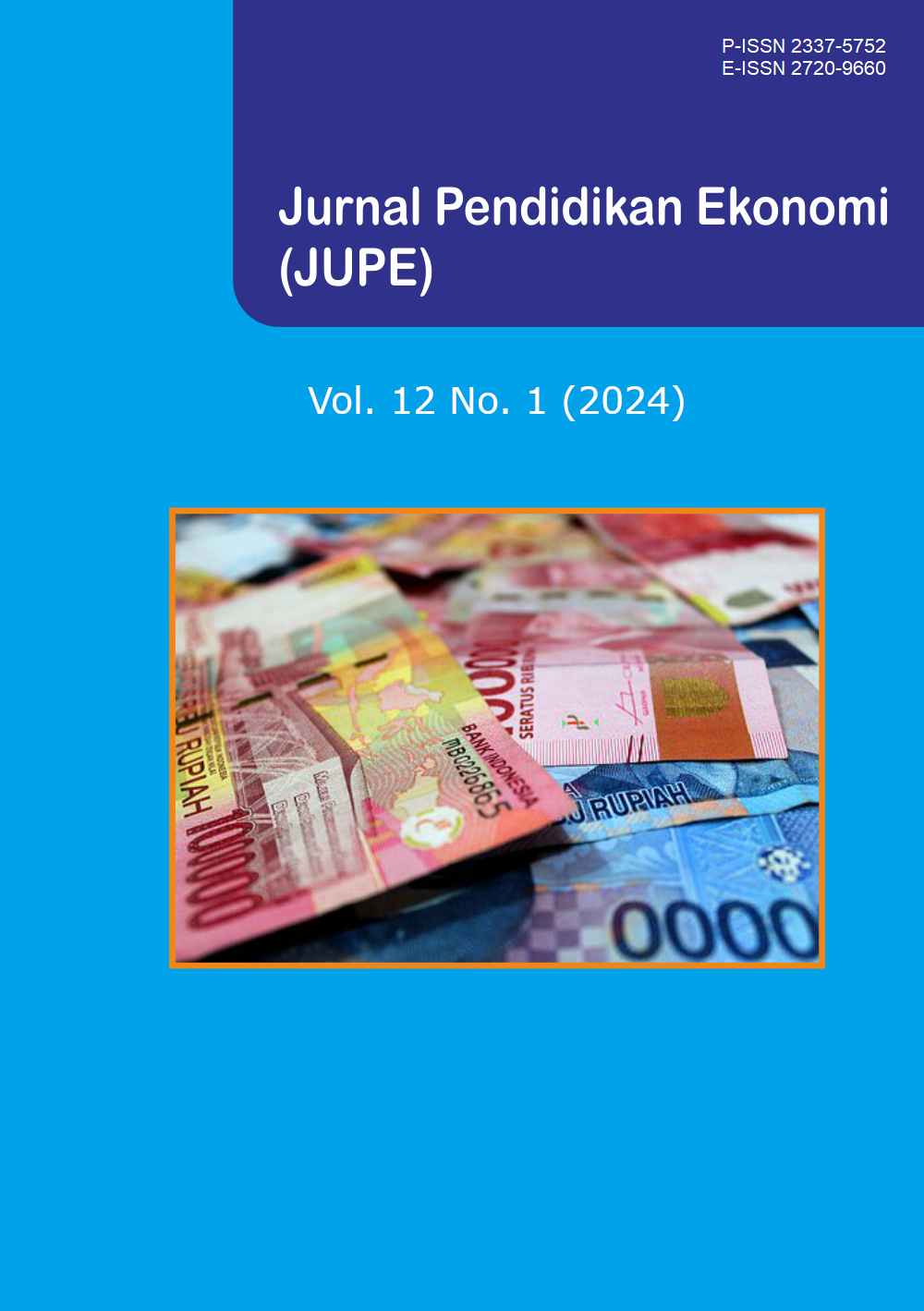Apakah Self-Efficacy Memoderasi Hubungan antara Digital Literacy, Self-Directed Learning, dan Creative Thinking dengan Prestasi Belajar Siswa?
DOI:
https://doi.org/10.26740/jupe.v12n1.p37-50Keywords:
digital literacy, self-directed learning, creative thinking, self-efficacyAbstract
This research aims to determine the influence of digital literacy, self-directed learning, and creative thinking on learning achievement with self-efficacy as a moderating variable. This research uses an explanatory quantitative approach. The research sample was 107 Accounting students obtained using the saturated sampling method. Data was collected through closed questionnaires and then analyzed using Moderated Regression Analysis (MRA). The results indicate that digital literacy has a positive effect on learning achievement, but self-efficacy cannot moderate the influence of digital literacy on learning achievement. This research also found that self-directed learning has a positive effect on learning achievement and self-efficacy is proven to strengthen the influence of self-directed learning on learning achievement. Creative thinking ability also has a positive effect on learning achievement and self-efficacy can strengthen the influence of creative thinking on learning achievement. Therefore, students must be able to improve their digital literacy, self-directed learning, creative thinking and self-efficacy skills to increase their learning achievements.
Downloads
Downloads
Published
How to Cite
Issue
Section
License
Copyright
- Authors retain copyright and grant the journal right of first publication with the work simultaneously licensed under a Creative Commons Attribution License that allows others to share the work with an acknowledgment of the work's authorship and initial publication in this journal.
 Abstract views: 275
,
Abstract views: 275
, PDF Downloads: 452
PDF Downloads: 452











